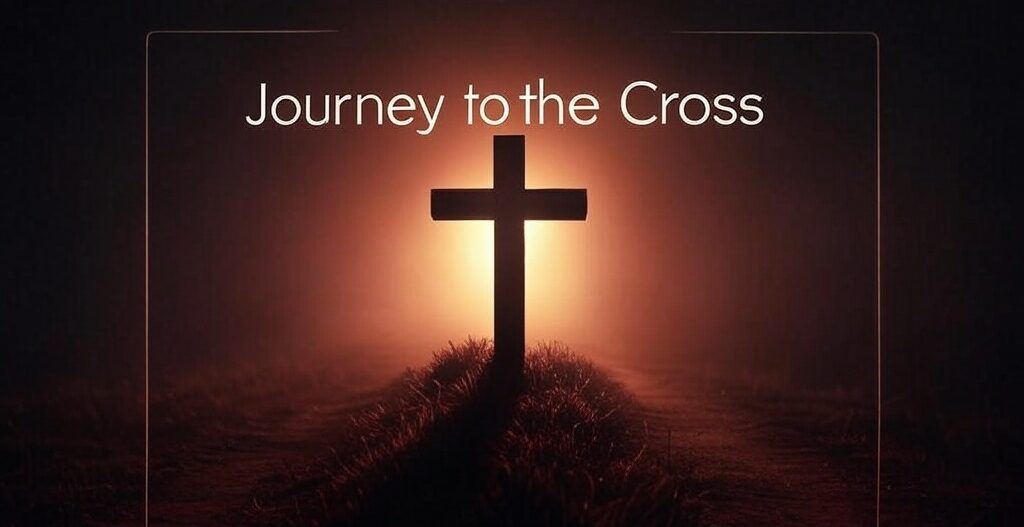He went through one town and village after another, teaching and making his way to Jerusalem. “Lord,” someone asked him, “are only a few people going to be saved?”
He said to them, “Make every effort to enter through the narrow door, because I tell you, many will try to enter and won’t be able once the homeowner gets up and shuts the door. Then you will stand outside and knock on the door, saying, ‘Lord, open up for us!’ He will answer you, ‘I don’t know you or where you’re from.’ Then you will say, ‘We ate and drank in your presence, and you taught in our streets.’ But he will say, ‘I tell you, I don’t know you or where you’re from. Get away from me, all you evildoers!’ There will be weeping and gnashing of teeth in that place, when you see Abraham, Isaac, Jacob, and all the prophets in the kingdom of God, but yourselves thrown out. They will come from east and west, from north and south, to share the banquet in the kingdom of God. Note this: Some who are last will be first, and some who are first will be last.” Luke 13:22-30 (CSB)
What does it mean to be saved?
First we need to distinguish between Jewish theology, and Greek Philosophy. The Greeks had tremendous cultural influence over the known world. Although Rome was the great empire, it was the Greeks that won culturally and Hellenism spread wherever Rome conquered. At the core of Hellenism was its philo-sophy (philos and sophia) or love of wisdom. Perhaps the most prolific and influential philosopher in the known world was Plato, from who we also get Socrates. It was Plato (and others) who argued, that the human being was mortal flesh and immortal soul and that the soul was contained in a way by our bodies, but would be released upon death and go to the land of forms (heaven).
When early Christian theologians attempted to understand their faith, many of them were deeply rooted in Hellenistic (Platonic) thought and used Plato’s imagery to describe their beliefs in contrast. St. Augustine was perhaps the most famous. The trouble is that, what was used in contrast came to be the norm, and our understanding of soul, body, and heaven became more Greek that Jewish or Christian in many instances. In this version, to be saved means your soul goes to heaven when your body dies.
This is NOT Christian theology. Within Christian theology, the soul and the body are enmeshed, and heaven is already interacting with our world. Heaven is the realm in which God operates, and it is deeply connected, if hidden. It is like the heart of creation, beating at all times. At the two ends of the bible we see harmony in God’s creation identified as the union of heaven and earth, once in the Garden of Eden and once in the Heavenly Jerusalem descending upon the earthly one (Rev. 21:2-3) and the reunification of Heaven and Earth as God intended. When heaven and earth are unified, there is peace, harmony, and wholeness. Where there is not, there is conflict, war, jealousy, and strife (see the story of Cain and Abel as the first story after the separation). Where Satan separates heaven and earth, Jesus is reunifying. This is complex but really important. Because to be saved then means to belong to this heavenly sort: To the heavenly rule. Only the ones who identifying (with both word and being) with the new Heavenly reign will continue on in the iteration of Creation that God is bringing about.
Those who continue in active rebellion against the rule of God will be kicked out. It doesn’t matter what you say with your mouth, or what your background is. It’s an issue of fealty and rule. Who is your true King? Are you allowing heaven to begin to rule in your life? This is not about action or works, but about Grace (invitation) and submission (acknowledgment) symbolized and performed through baptism. It’s to acknowledge Jesus as King and to allow him to be so in your life. If you’re not willing to be in now, you won’t be in at the end either.
So how are we saved? By allowing the rule of heaven to be broken into us through baptism and allowing the Spirit to begin the work of new creation within us.









